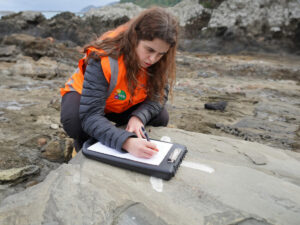Worldwide, infrastructure is constantly expanding to support our growing population. Cities regularly build new roads and resurface and rehabilitate old roads to accommodate increasing vehicle traffic. Unfortunately, there are several long-term environmental impacts associated with increased construction, and organisations are looking to sustainable solutions to mitigate these potential problems.
The negative long-term effects of the production, transportation, and placement of asphalt, concrete and other road building materials are many, and they continue to contribute to the damage of the environment. Construction companies looking to increase their sustainability should be aware of the different types of eco-friendly paving options available.
Infrastructure Magazine had the opportunity to speak with Tonkin + Taylor Technical Director, Colin Dailey, who explained that organisations looking to employ sustainable materials in their projects should have a strong understanding of the different types and availability of such materials currently being used by the industry.
“It’s important to understand what the different properties of these materials are, as well as making sure that they’re fit for purpose,” Mr Dailey said.
“And ensuring that they’ve got the right engineering properties for the particular application that they’re being proposed for.”
Mr Dailey described a number of available sustainable paving solutions, including:
Crushed concrete
When concrete structures are demolished, the resulting material is typically sent to landfill. However recently it has become more common to recycle this material as it is highly resistant to degradation and can supplement the use of virgin materials.
Crushed concrete can be added in as a supplementary material within various road making materials or used in its own right as an alternative to quarried crushed rock products.
Diversion of the waste material is one upside to using this crushed concrete, particularly in metropolitan areas where landfill space is becoming increasingly scarce. It also repurposes existing materials rather than extracting new material from a finite resource.
Recycled Asphalt Pavement
Reclaimed asphalt pavement, also known as RAP, is material generated when asphalt pavements are removed for reconstruction, or resurfaced where the removed asphalt profilings are recovered for later reuse.
When properly screened into various particle sizes, RAP consists of high-quality, well-graded aggregates coated by bitumen which can be reused in new asphalt mixes, which can be used in place of virgin aggregates and bitumen.
Like concrete, asphalt is non-biodegradable and the process of creating virgin asphalt products uses up valuable non-renewable resources like oil. By utilising recycled asphalt within new asphalt mixes and other technologies including warm mix processes and bio bitumens, pavement professionals can decrease their carbon footprint.
Crumb rubber
Crumb rubber is produced from vehicle tyres that have reached the end of their service life. This practice allows end-of-life tyres to be used for productive outcomes, rather than sent to landfill or sent overseas where they are often burned.
Not only does making use of crumb rubber reduce a challenging waste stream, the material results in asphalt mixes and binders that have a higher resistance to deformation at increased road temperature, improved flexibility and can improve the bond between the bitumen and aggregate particles to offset to oxidation effects as bituminous materials age.
Cost-effective, durable and eco-friendly, recycled paving materials are an ideal alternative for commercial, residential, and municipal infrastructure projects. As the world grapples with the challenges of climate change and resource scarcity, these materials are paving the way to more sustainable and resilient infrastructure.
Sustainability is key to infrastructure success. Contact our specialists for help with your sustainable infrastructure goals by emailing australia@tonkintaylor.com.au or calling +61 3 9863 8686.
(This article was originally published in June by Infrastructure magazine.)



















